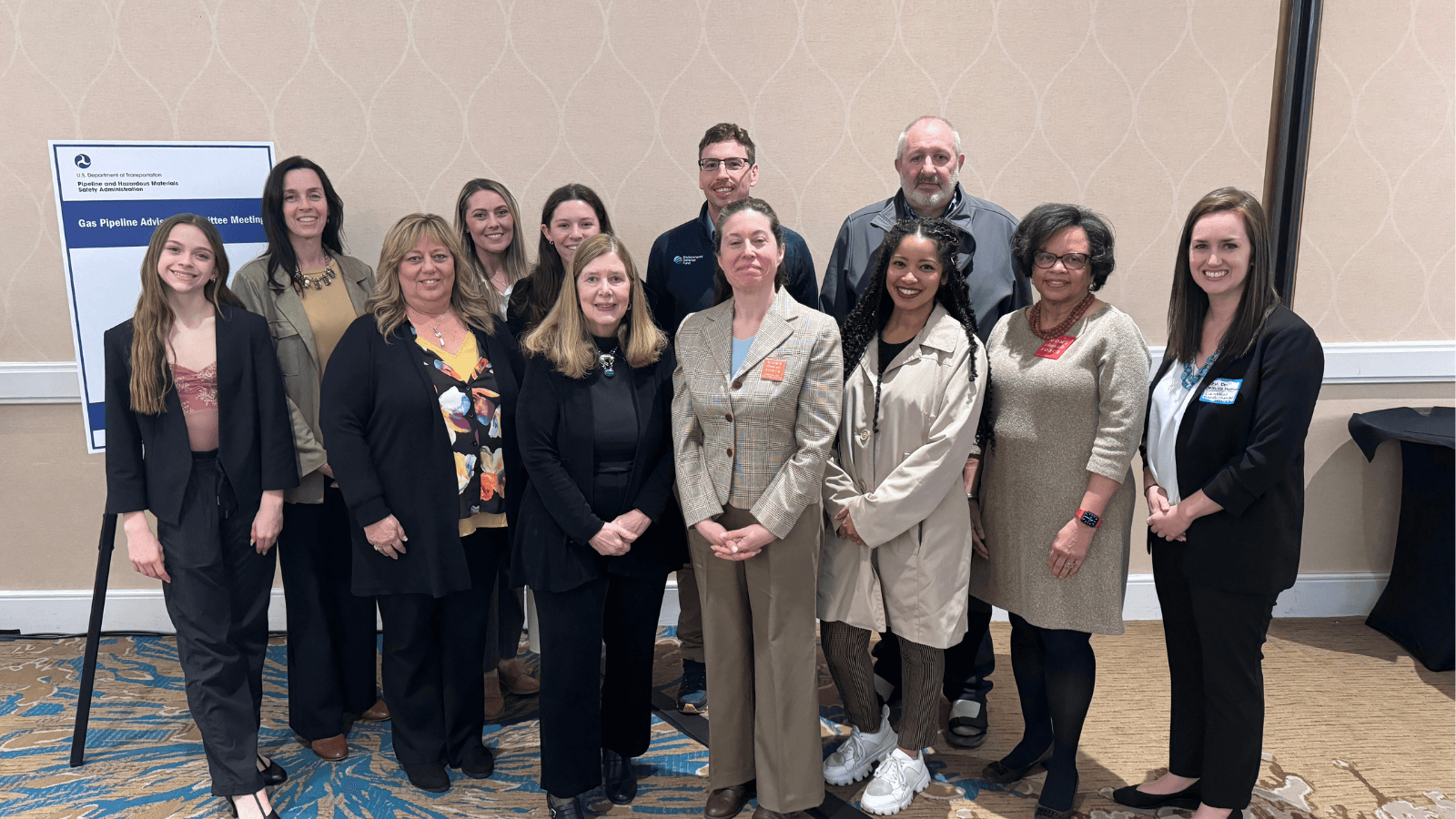
At the end of March, I had the opportunity to attend and speak at a Gas Pipeline Advisory Committee Meeting (GPAC) in Washington D.C. on behalf of EEN’s partner ministry, Young Evangelicals for Climate Action (YECA). GPAC is an advisory body that reviews proposed rules issued by the Department of Transportation’s Pipeline and Hazardous Materials Safety Administration (PHMSA) and is comprised of experts, researchers, industry officials, and members of the public working in related fields.
EEN and YECA were a part of a group of folks from across the country who were attending the meeting to share testimony related to a proposed PHMSA rule the committee was reviewing. The rule in question would establish protective standards for improved pipeline leak detection and repair. (You can learn more about the specifics of the rule here or from this video.) It is especially important because the rule covers methane pollution from sources that aren’t included in the EPA’s newest methane standards. Natural gas pipelines are a significant source of methane, a potent greenhouse gas that is harmful to our health.
The central message I brought to the committee was that for Christians, methane pollution and pipeline safety are a matter of defending life. I was able to speak, not only on behalf of YECA, but also for my community in Grand Rapids, Michigan. I was very grateful for this opportunity, especially when I discovered it’s typically rare for the public to share their stories with rulemakers.
Usually, GPAC meetings last an entire week, and this one was no different. While anyone is able to register to attend and observe, the committee works through an agenda with no set time schedule. This means that, if you are unable to be present for the entire week-long meeting to provide public comment at the appropriate but unspecified time, you’re out of luck. While this setup works fine for industry officials and their employers who pay for their time and travel, it’s no small feat for everyday folks to interrupt their lives midweek and travel far distances to Washington, D.C. to be able to share their story for just one day, much less an entire week. But, we came there with a goal in mind and we were dedicated to making sure our perspectives would be heard.
Our group gathered on a Monday night for dinner as a chance to meet each other. Social conversation was forced to the back burner, though, as the reason we were there was at the forefront of our minds. We were planning to attend the meeting the next day and find a time to speak at some point, but it felt like a black box. Luckily, two group members had been able to attend the meeting that first day and filled us in on how things were running, where the committee was on the agenda, and did their best to give us an estimate of what time we might be able to speak the next day.
On Tuesday, just before lunch break, I, along with about a dozen others, lined up behind a microphone in the corner of the room to give testimony to the committee. Parents spoke about their concern for the health of their children. Homeowners and farmers shared the negative impacts they’ve endured from the presence of pipelines on or near their properties. It was a privilege to bring the public health concerns and the voice of young Christians in the midwest to our nation’s capital and present them before people who have the power to make a change. It was a powerful and surreal moment as the committee was faced with the real life implications of the complex and specific details of the rule they’d been discussing and debating.
During the break after our testimony, the mood in the room had changed. Instead of formal and stuffy, it was now solemn, yet energetic. Everyone in the room had been impacted by the passion, care, and concern of the affected homeowners, concerned citizens, environmental advocates, and people of faith. Several committee members came up afterward to express their deep gratitude for our presence and for sharing our stories. They said they don’t often hear from members of the public, but it’s something they feel is necessary and believe should happen more often. We were even able to have a discussion with a member about ways we can make these meetings more accessible to the general public to have their voices heard and how it would improve this important decision-making process.
Just this week, we even learned that our advocacy efforts and speaking out helped stop delay tactics from the oil and gas industry that sought to slow down the rulemaking process, instead keeping the proposed standards on track.
For me personally, opportunities like this one always provide interesting insight and experience as well as a behind-the scenes look at our country’s decision-making process. My biggest takeaway though is always renewed energy; the motivation and vigor to continue our creation care advocacy work. Like the Persistent Widow in Jesus’s parable (Luke 18:1-8), we must be persistent in bringing our voices–-and the voices of our most vulnerable communities–to the seats of power and not be deterred even when the process is difficult, because it really does make a difference.
You can use your voice and speak out in support of improved pipeline leak detection and repair here.






